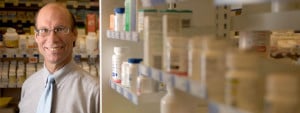The Stanford Prevention Research Center is launching Health 4 America (H4A) – a nine-month, post-baccalaureate professional certificate program –in January that combines an evidence-based curriculum with a practical component.
H4A is currently accepting applications for 25 fellows who will complete three quarters of coursework and internship activities, with the first quarter front-loading the on-campus class experience and the second and third quarter shifting toward practical experience.
“Health 4 America will be taught by our faculty and covers managing chronic disease, what is the basic science behind changing human behavior, how to engage communities to take ownership of their health and how do you measure the impact of what you’re doing,” said Sonoo Thadaney, director of program development at the Prevention Research Center.
According to Thadaney, H4A was developed with the aim of providing students an opportunity to experience learning through service, with the idea that combining the experience of both working and learning is much more powerful and practical for its participants.

“One of the goals of the Health 4 America program is to provide an experience that is different from what students would be receiving in public health school or pre-professional school,” said Randy Stafford, one of H4A’s faculty members who will be teaching the first class of the entire program, The Science of Prevention.
Stafford and other faculty members will act as the fellows’ professors during class and as mentors during their internships.
Stafford, who also teaches undergraduates with the Human Biology program, said that for a recently graduated student, H4A is a way of exploring a number of topics that he or she might not be exposed to in professional schools, and it would serve as a transition stage where the student would be able to look at health care at a broader level.
“All the faculty members have an interest to meet the needs of the students,” Stafford said. “We want to work individually with the fellows to help them in that process to clarify career goals.”
However, the fellows’ learning will be not restricted to on-campus. Fellows will be matched with various community centers in the local area for internships. Stanford clinics, local public schools and the Indian Health Center of Santa Clara Valley have already expressed interest in partnering with H4A.
“We know that wellness and health starts with clinics and hospitals,” said Thadaney, explaining the rationale for requiring fellows to serve in the community.
“But the health care system right now is monitored on treatment, not on prevention. So not having one with the other was insufficient,” she added. “We felt we had to have both to have the impact we want to have to create a wider and deeper impact.”
In addition to being partners with off-campus community centers, the program is in collaboration with other departments on campus to develop its interdisciplinary curriculum.
“We’re in conversations with the design school with how to incorporate their design thinking strategies into our curriculum, with the Graduate School of Education on the fact that people learn differently–which can be used in public health campaigns–and with other centers and departments,” Thadaney said.
The interest for the H4A program ranges from post-graduates to those retiring and looking for another career, but Thadaney and Stafford think a diverse group with a shared mission and goal is for the better.
This is because one of the most important components of the program, according to Thadaney, is the peer mentorship through the three quarters of the program. As fellows will have different backgrounds and experiences, the reflections that they each make and share with the group will be useful and provide a breadth of perspectives.
“It will absolutely be a challenge, but we have to take advantage of the benefits that the students will come to us at different levels and skills,” Stafford said. “Everyone will really get to rethink their role in the health care system.”
Contact Catherine Zaw at czaw13 ‘at’ stanford.edu.
